










Prospectus 2026/27
I am delighted to welcome you to our Sixth Form prospectus for 2026/27.
Sibford Sixth Form is a vibrant, friendly community where students grow in confidence and independence as they prepare for life beyond school; whether that’s university, apprenticeships, work, or other exciting opportunities. Our aim is simple: to nurture ambitious learners who use their creativity, compassion and curiosity to make a difference in the world.
What makes Sibford Sixth Form different?
At Sibford, you are known and valued for who you are. We believe every young person has a voice, and we encourage you to use yours to shape your story and contribute to the life of our community. Our dedicated teachers and tutors work closely with you, offering personalised guidance and support throughout your Sixth Form journey.
Of course, strong academic results matter, and we are proud of the progress our students make; many achieving top grades and moving on to some of the best universities. But our focus goes far beyond exam results. We want you to be authentic, to grow in resilience and to feel reassured through challenges, as well as celebrate in your successes.
Your pathway, your future
We celebrate every path our students choose to follow. Some aim for highly academic routes and top universities, while others pursue vocational courses, apprenticeships, gap years or careers. With a broad mix of A Levels and BTEC courses on offer, we work hard to help you find the right combination. Careers advice, UCAS preparation and study support are all strong features of our Sixth Form provision.
Sibford offers a wide range of opportunities outside the classroom through our Horizon sessions and Sixth Form Diploma. Sport is
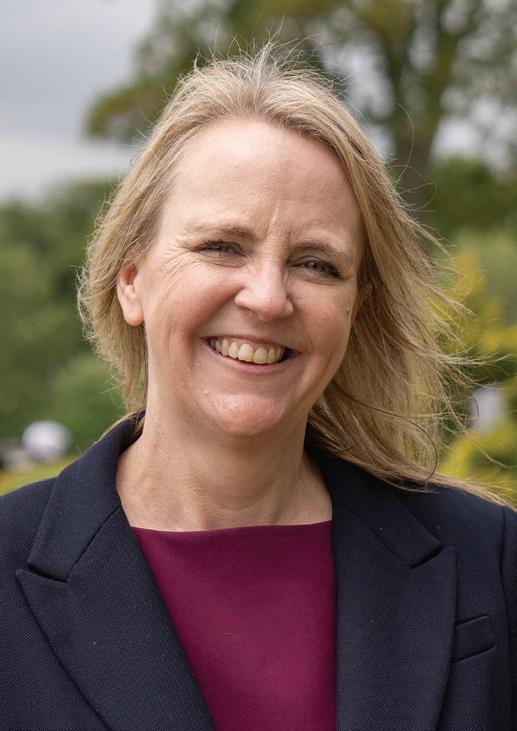
thriving, with students competing both nationally and internationally. Our 50-acre site provides excellent facilities and we encourage a ‘sport for all’ ethos alongside a strong Performance Sports programme. Music, drama and creative arts are well established, while activities such as The Duke of Edinburgh’s Award (to Gold level), volunteering and adventurous trips, both in the UK and abroad, give students the chance to develop new skills and experiences.
Boarding and preparation for university
Boarding at Sibford adds another dimension to Sixth Form. It gives students a real taste of independence, helping them to develop the confidence and life skills that make the step to university feel natural. Living alongside friends fosters a strong sense of community, while also encouraging responsibility, self-discipline and the ability to balance work and social life. Our boarding houses provide a safe and supportive environment, but with the freedom for students to grow into young adults ready to take their next steps.
No prospectus can fully capture the spirit of Sibford. The best way to discover what makes our Sixth Form special is to come and meet us in person. You will always receive a warm welcome.
Rebecca Evans Head

One of our great strengths is the breadth of students that you will meet within the community. “ “
Welcome to Sibford Sixth Form: a place where you can develop intellectually, personally and socially.
At Sibford, we offer a holistic educational experience. We dovetail our curriculum offer alongside our pastoral support to encourage a thirst for lifelong learning in our students. The fabric of our school is the supportive environment we provide each one of our students. A common theme in everything we do is individuality. Whether it is academic, cultural or sporting success, we pride ourselves in providing the high level of bespoke guidance, structure, advice and experience needed to allow our students to achieve excellent progress.
We are proud of our students, the results they achieve and the citizens they become. In 2025, the Department for Education’s progress data confirms our students’ exceptional achievements:
- BTEC Excellence: Sibford has been ranked top in Oxfordshire and placed within the top 5% nationally for progress made in BTEC courses.
- A Level Achievement: Our A Level progress puts Sibford among the top 5 schools in the county and within the top 20% nationally for progress, reflecting the strength of our valuesbased approach.
We offer a wide-ranging post-16 curriculum which involves both traditional A Level and vocational subjects. As a Sixth Form team, we constantly review our curriculum offer to accommodate national trends to give

our students every chance of success postSibford. Pastorally, our students are seen as ambassadors to the younger students in the school. We have high expectations of our Sixth Formers. Some of these include the responsibility to take part in community service, raising awareness and money for a chosen charity of their choice and making the most of leadership or super-curricular opportunities to build on their potential.
We are proud of our dedicated Sixth Form Centre. This is an incredible working space for our students to learn and grow as individuals. The workspaces provide a balance between collaborative working areas combined with individualised work spaces, catering for the individual needs of each of our students. This has been designed in a way that encourages a university style of learning and a seamless transition into professional life beyond Sibford.
We hope that you look at Sibford as an environment that taps into the individuality of a student. It is a place where staff understand the needs and aspirations of each student. This intimate and supportive space is a platform that allows students to be the best they can be in whatever their interests and strengths are and wherever their dreams or aspirations take them.
Helen Gormley Head of Sixth Form
The Sixth Form Centre at Sibford is fully equipped for the needs and requirements of young adult learners. It provides comfort and support for a variety of learning styles as well as areas for students to relax in each other’s company.
Effective use of private and independent study is the key to success in the Sixth Form. The designated study areas ensure that Sixth Form students are fully supported and encouraged to work independently.
All students learn in different ways. To ensure that all learning styles are catered for, the Sixth Form Centre provides a range of soft chairs, sofas, tables and study areas. Students are also provided with café tables so that groups can share and extend their learning together.
Sixth Form students are expected to bring their own devices to school. This ensures they are able to use their independent study time effectively, enabling them to build on and extend the class learning.
Social time is important for full enjoyment of Sixth Form life as it creates positive working relationships and engenders supportive groups. To ensure they can make the most of their educational experience, the Sixth Form Centre includes a modern, wellequipped kitchen area exclusively for Sixth Form students.
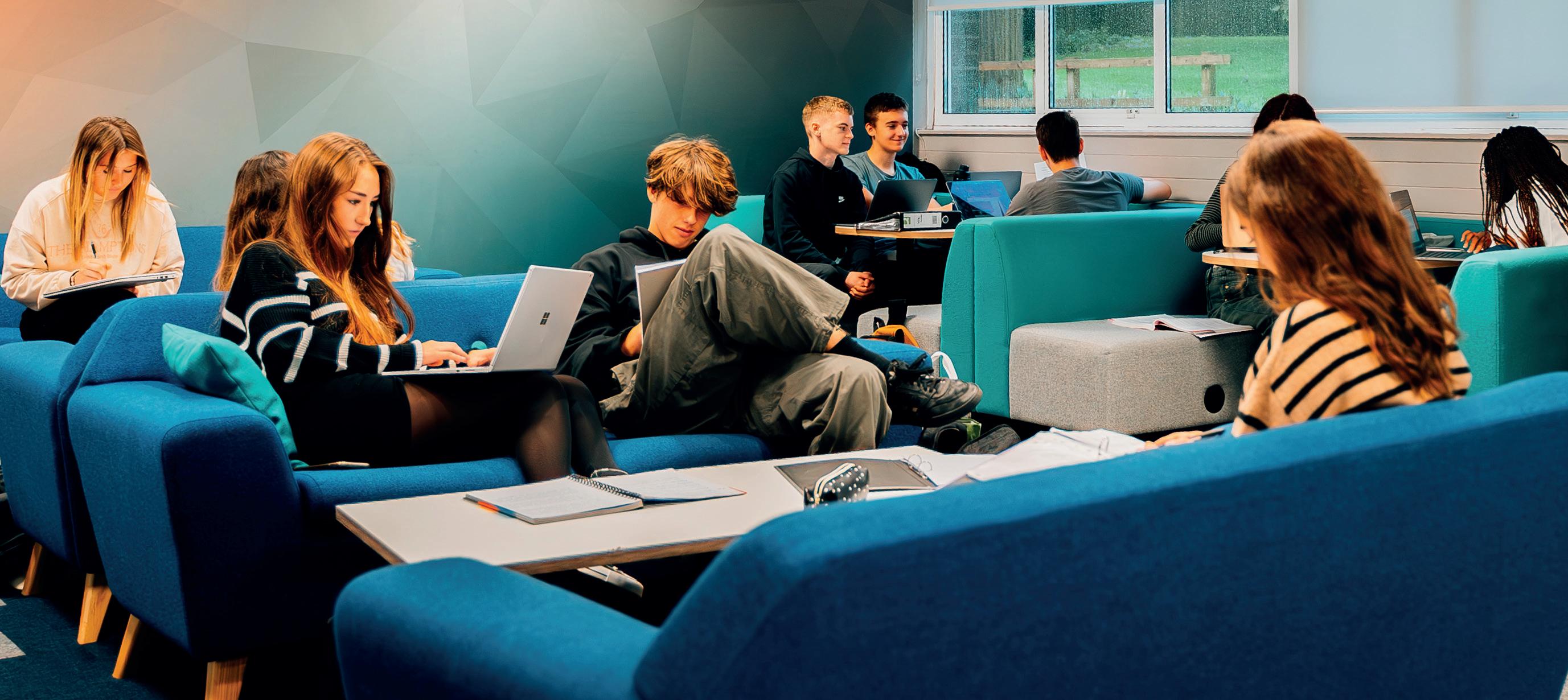
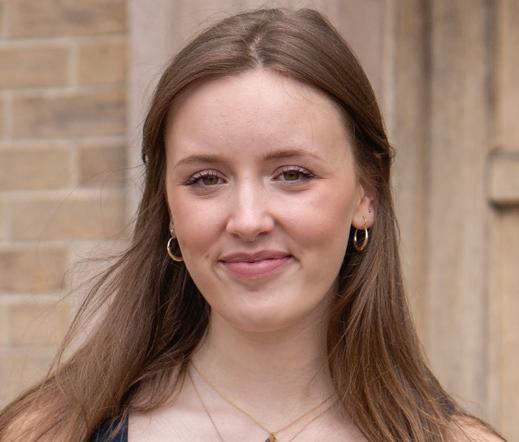
Anna Studying A Level Biology, Chemistry and Maths.
I joined Sibford in Year 7, and this school has played a major part in shaping me into the person I am today. Despite studying quite challenging subjects, I have felt supported the whole way through my journey here. Sibford has helped me play to my strengths and has been incredibly supportive with my academics and medical school application. I really appreciate the small class sizes and relationships I have built with my teachers, as it never feels daunting to ask a question or for help. While being here, l have really grown in my confidence and come out of my shell – being a part of the leadership team has really contributed to this, but also the close-knit community that is Sixth Form has brought me closer to people who otherwise I wouldn’t have known well, helping me form lifelong connections with others.

Nicholas Studying: A Level Design & Technology, BTEC Business Studies, CTEC Sports & Physical Activity.
When I joined Sibford in Year 6, I was struggling at school and in life and having a label above my head of being autistic or ‘the one’ who had dyslexia. I could easily have gone down the wrong path, but Sibford gave me something I had never felt before: belief in myself. Here, I was not treated as a problem, but as a person with potential. Teachers genuinely cared and believed in me, encouraged me, supported me and pushed me in ways that helped me grow not just in the classroom but with life skills as well. Over the years, Sibford has shaped me into someone I never thought I could be. It gave me confidence, taught me responsibility, and showed me how to use my individuality as a strength. Through sport, leadership and countless opportunities, I have discovered resilience, teamwork and pride. Today, as Head Boy, I can honestly say Sibford has not just educated me – it has saved me, shaped me and made me proud of who I am.
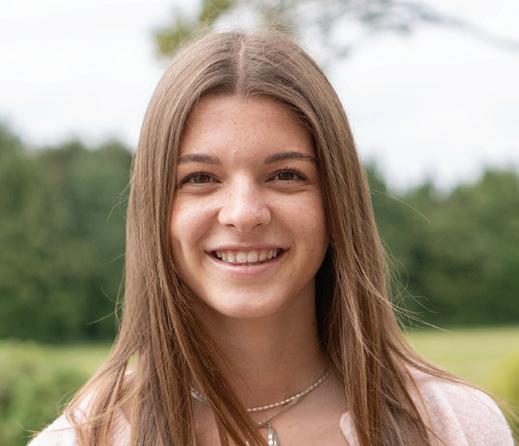
Pippa
Studying A Level Biology, Chemistry and Maths. I came to Sibford in Year 7, and from the very beginning I have felt so seen and supported by everyone that I interact with throughout the school. I am someone who learns best by asking lots of questions, and the small class sizes at Sibford make it very easy for me to do that, giving me the chance to ask what I need to and get extra help from my teachers until I really feel I have grasped even the most difficult of concepts. This, along with the wide range of opportunities across sports, drama, arts and music have allowed me to explore my creative side and have really helped me to flourish as a person and thrive during my time here.

Studying A Level Sociology, BTEC Media Studies and Level 3 Food Science and Nutrition. Since joining Sibford in Year 9, I could never have imagined myself becoming Head Student. I have come to truly appreciate the values and morals that define Sibford, as well as the constant support offered to us as students. What makes Sibford so special is its strong sense of community. Whether it’s walking through the corridors or being greeted by staff and students, there is a real sense of belonging and being valued. The small class sizes allow teachers to focus on individuals’ studies and extend a wide range of knowledge to us as we progress through to university. My years at Sibford have given me friendships to last a lifetime and an education that has opened endless opportunities. Alongside academic growth, Sibford has nurtured my confidence and given me vital life skills: teamwork, leadership, resilience and determination, encouraging me to always strive to be the best version of myself. Sibford is more than a school; it is a supportive community that inspires you to aim high, embrace challenges and believe in your own potential.
The PSHE Programme has been designed to reflect the needs of our students, to equip them with a sound understanding of risk and the knowledge and skills necessary to make safe and informed decisions. We seek to use PSHE education to build, where appropriate, on the statutory content already outlined in the National Curriculum, the basic school curriculum and in statutory guidance on drug education, financial education, sex and relationship education (SRE), and the importance of physical activity and diet for a healthy lifestyle.
We follow the core themes stipulated in the Key Stage 5 PSHE framework offered by the PSHE Association.
Our aims are to:
• develop and foster the creation of responsible and caring citizens, promoting equal opportunities and environmental awareness
• promote self-esteem and emotional wellbeing, helping the formation and maintenance of positive relationships
• prepare students for the next steps in their education, training or employment
• develop students’ confidence and responsibility, making the most of their abilities
• promote a healthy, safer lifestyle
• instil the importance of good relationships and respect for people’s differences.
As part of PSHE lessons, tutors engage with their tutees over topical issues which follow the statutory requirements in the PSHE curriculum. This is delivered in lively debates, topical video clips and reflection forms within the PSHE lessons. We have a variety of guest speakers who address the Sixth Form about university and apprenticeships. We also invite our alumni to talk about their progression routes after completing their Sixth Form studies.
Included in our PSHE offer, tutor groups cover issues such as:
• relaxation techniques and the science behind how to relax
• classification of drugs and where to seek support
• STIs
• cosmetic and plastic surgery
• social justice
• honour violence
• critical thinking and fake news
• ageism
• controlling relationships
• employability skills
• career planning and leadership skills
• pensions and retirement.
Key areas in our PSHE programme follow core themes set by the PSHE Association.
These include:
1. Health and wellbeing
2. Relationships
3. Living in the wider world.
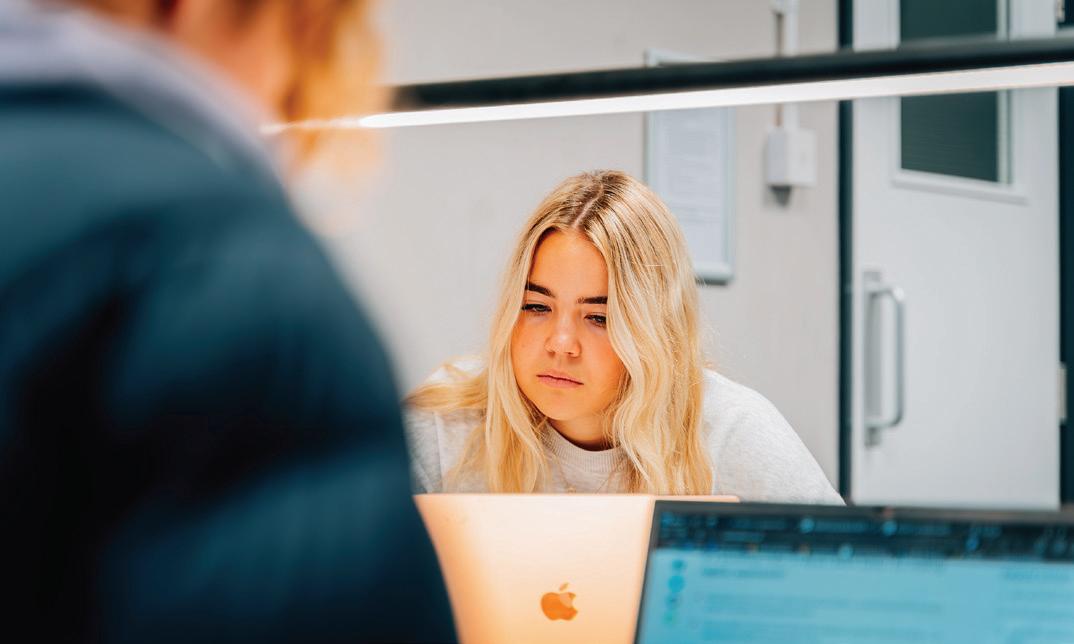
When you join a sports team, a drama club, or a debating society at Sibford, you are not just learning skills related to that activity. You are building character, resilience and perseverance. These are qualities that will serve you well, not only in school but throughout your entire life.
Extra-curricular activities challenge you in ways that the classroom alone cannot. Whether it’s training for a match, rehearsing for a play, or preparing for a competition, you learn that success requires sustained effort over time. Extra-curricular activities also teach us about teamwork, collaboration and leadership.
Countless research studies show that students who are involved in extra-curricular activities fare better on just about every conceivable metric – they earn better grades and have higher self-esteem, but most importantly, they have better health and wellbeing.
Please see the selection of activities that Sibford Sixth Form offers each year. The culmination of these events is the Curriculum Enrichment Week trip at the end of Year 12. This is chosen and planned by a team of volunteers from Year 12 alongside staff.
SPORT / PHYSICAL ACTIVITY:
• Badminton
• Basketball
• Climbing
• Cricket academy
• Football training
• Hockey training
• Netball training
• Rugby training
• Strength and conditioning
• Swim academy
MUSIC AND DRAMA:
• Chamber choir
• LAMDA lessons
• Peripatetic music lessons
• School production rehearsals
• Sibford community orchestra
• Sixth Form band
WIDER SOCIETIES:
• Amnesty International
• Charities council
• Eco council
• Fair Trade group
• LGBTQ+ society
LEADERSHIP OPPORTUNITIES:
• Boarding captain
• Charities captain
• Head team
• House captains
• Sports captains
CREATIVE ARTS:
• Ceramics club
• Printmaking club
• Screen printing club
OTHER:
• Debate club
• Cooking on a budget
• Curriculum Enrichment Week – Year 12 residential
• CSI club
• Newspaper club
• Sibford Scoop
• The Duke of Edinburgh’s Award - Silver and Gold
At Sibford, we provide a unique co-curricular experience where students, as part of the timetabled school day, have the opportunity to select from a variety of activities and clubs. Sixth Form students take part twice a week in sessions to help them in their futures, such as cooking on a budget as well as academic sessions including physics and maths societies and leadership activities, writing for the Sibford Scoop and newspaper club.
The DofE Award gives young people the chance to serve their local community and gain a sense of achievement. Often, students will already have completed their Bronze Award; however, it is possible to have direct entry into the Award at Gold Level. DofE is a non-curricular activity which is greatly valued by employers and universities.
These events aim to support students in making important decisions about their future. The UCAS application process will be fully explained so that students can make appropriate

choices. They will also receive advice on how to make successful applications to universities, apprenticeships and the world of work.
It is an expectation that students engage wholeheartedly in community service. We want our senior students to be a reassuring presence and get to know younger pupils. Students can contribute in a variety of ways, such as running a Key Stage 3 club, being a classroom assistant in the Junior/Senior school or any other way they feel can add value to our community and be in a position to contribute in the service of others.
Each tutor group will be responsible for selecting a charity that they wish to support. Throughout the year, students in the tutor group will be expected to develop a strategy to raise awareness and money for their chosen charity. This offers them the opportunity to organise fundraising events, deliver presentations in front of others, coordinate activities, make decisions and ultimately make a difference in the wider community.

Oxford University states that ‘super-curricular activities are those that take the subjects you study further, beyond that which your teacher has taught you or what you’ve done for homework. You may go into more depth on something you picked up in the classroom or learn about a new topic altogether’. Below is a sample of our super-curricular programme, which evolves year on year to reflect new opportunities.
At Sibford Sixth Form, we encourage students to grasp as many of these opportunities as possible; universities and employers value this more and more.
Philosophy and Ethics
Hiroshima performance and workshop from outside theatre company
Foxtrot residential to Lake District
Guest speaker: Letlapa Mphahlele
Geography 4-day residential to Wales
Online Gresham lecture – The Geography of Ill Health
Online Gresham lecture – Health after Earthquakes, Volcanoes and Tsunamis
Trip to Iceland
Food and Nutrition
BBC Good Food Show
Maths National Senior Maths Challenge
MathsFest conference in London
Maths inspiration lectures
Creative Arts (Art & Textiles)
Computer Science
Visit to Ashmolean and Natural History museums in Oxford
London Fashion Academy
Art Competition for Ironstone Banbury Gallery
Art and Design in Action
Scholars’ exhibition
Fashion show
Online Gresham lecture - Will Computers Outsmart
Mathematicians?
Computer Science in Action Conference
Online Gresham lecture - Artificial Intelligence and Humour
Each department will have its own list of super-curricular ideas for students to engage in. The school also provides access to MOOCs (Massive Online Open Courses).
Sport and Physical Activity Hockey tour to Holland
Rugby tour to Venice
Termly sport workshops for more and most able
Visit to University of Bath – Sports Science Day
English
Debating society with Cherwell competition
Young reporter course
English in Industry – guest speaker from Starbucks
Theatre visits
History ‘The Tudors’ conference in London
4-day residential trip to Berlin
Historical Fiction Competition (Historical Association)
Science 4-day Biology residential to Somerset
Science Olympiads
Rotary Banbury Cherwell Technology Tournament
Weekly evening clinics in each Science area
Product Design Visit to Mini Plant in Oxford (with Business Studies)
Careers Careers fair at Olympia
UCAS Discovery in Birmingham and Oxford Brookes
EPQ Research trip to Birmingham Library
Drama and Music School productions - Macbeth and DNA
Visit from a West End performer
Media Visit to Harry Potter World

We aim to nurture ambitious learners who shape their worlds with their compassionate, creative and questioning minds.
Rebecca Evans,
“ “
Head
The Sibford Diploma is an opportunity to recognise the extra achievements that our students make at Sixth Form; the wider accomplishments throughout their school journey that do not fit into the standard school curriculum. Over the two years, there are a wealth of opportunities for students to widen their skill set and deepen their understanding of life beyond school. The World Economic Forum identifies the three top employable attributes as analytical thinking, creative thinking and resilience; the Sibford Diploma encourages our students to develop these skills through their time with us.
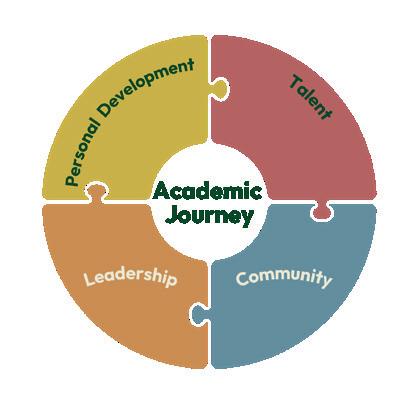
Each student is encouraged to take steps towards enriching their portfolio in four main areas:
• Personal Development
• Leadership
• Community
• Talent.
Presented at the end of Year 12, students will document their activities throughout the year to evidence their achievements and outline their highlights. This document can be submitted in any form such as PowerPoint, essay or portfolio. All submissions must be entered by the end of May Half-Term to their tutor and Helene Gentry (Pastoral Administrator). Students will be awarded credits for the Diploma in the four areas outlined
Levels for the award are as follows:
Level of Award
above. In order to qualify for the higher levels, a student must obtain credits in a range of areas, as we wish to encourage a varied skill set. School and student-led activities are awarded credits once completed. A student will then be awarded a grade according to their overall level of credits and quality of their submission.
Gold Achieve 20 credits across all 4 areas
Silver Achieve 15 credits across at least 3 areas
Bronze Achieve 10 credits across at least 2 areas
This list is not definitive. If there is something that a student completes that encourages skills beyond the curriculum, this can be included on the submission document and the activity will be considered and credits awarded accordingly.
At Sibford, sport is for everyone. Whether you’re competing for the school, exploring a new activity, or simply taking time to move, physical activity is an integral part of Sixth Form life. We believe that sport brings people together, builds resilience and supports wellbeing – values that sit at the heart of everything we do.
Our weekly games afternoon gives all students the chance to stay active, reconnect with friends and strike a healthy balance between study and recreation. Every student takes part, with opportunities ranging from competitive fixtures to social sport and fitness.
For those who love competition, Sibford’s Performance Sports programme provides expert coaching, performance sports training once a week, exciting fixtures against local and regional schools and entrance into national competitions.
Students are encouraged to represent Sibford at their chosen sports each team and can opt for the following:
• Autumn Term: Rugby and Hockey
• Spring Term: Netball, Football and Rugby 7s
• Summer Term: Cricket.
Swimming, cross country and climbing run throughout the year, giving students the freedom to stay active in their own way. Matches take place on Wednesday afternoons, and flexiboarding is available for those staying late after fixtures.
Our 50-acre campus offers outstanding facilities, including extensive sports pitches, a 25-metre indoor pool, a modern sports hall, climbing wall and fully equipped fitness suite. These create the perfect environment for every student – from dedicated athletes to those discovering new passions.
Students who prefer a non-competitive approach can take part in our Sports Development Carousel, which offers a rotating programme of activities that promote fitness, wellbeing and fun. Each term brings new options such as climbing, recreational football, basketball, fitness, pickleball, or wellbeing sessions –ensuring there’s something for everyone.
A wide range of before- and after-school clubs means Sixth Formers can pursue sport at their own pace – whether training with a team, swimming a few lengths, or working out in the fitness suite. Whatever their level, students are encouraged to find enjoyment through participation and to keep moving for life.
Sibford offers Sports Scholarships to students entering Sixth Form who demonstrate outstanding sporting ability and the potential to lead and inspire others.
We welcome applications from students who compete at club/county level or above, or shine as a multi-sport all-rounder.
Our Sports Scholars benefit from:
• personalised strength and conditioning programmes
• weekly Scholars’ gym sessions
• 1-to-1 specialist sports-specific coaching sessions
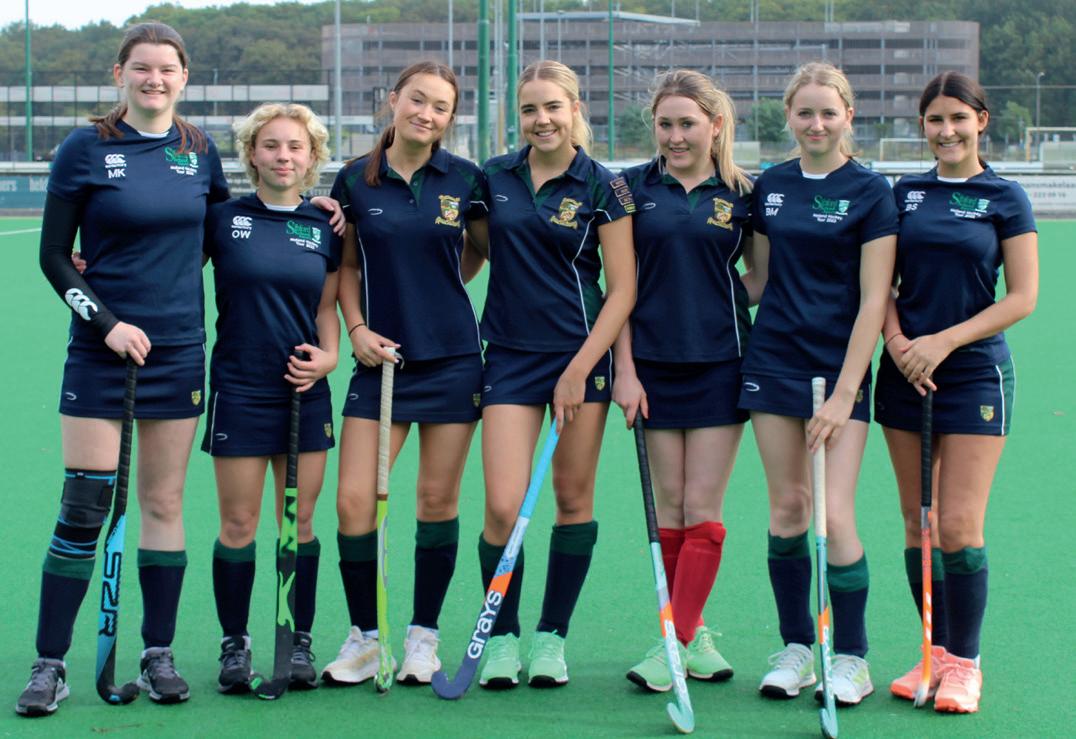

• entry into and support in national competitions
• half-termly mentoring and academic support
• specialist nutrition workshops
• biannual Sports Scholar trips
• inspirational guest speakers – including GB Olympians.
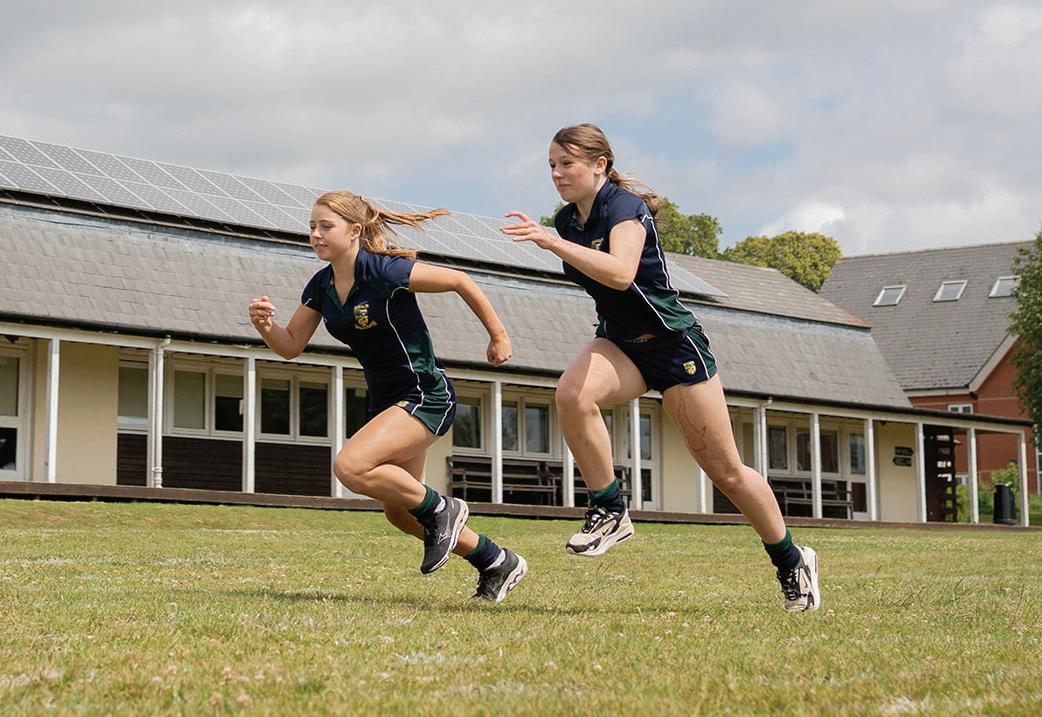
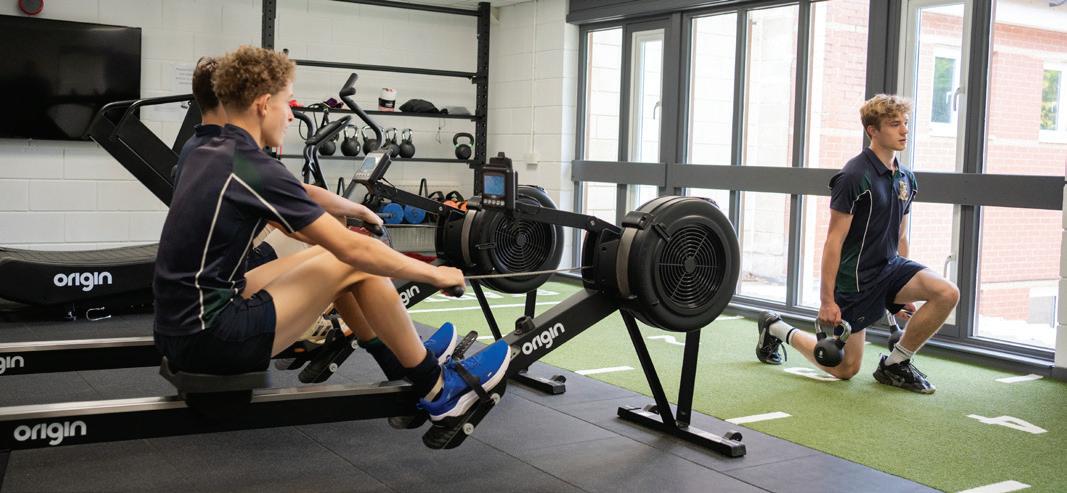
At Sibford Sixth Form, we don’t just prepare students for exams — we prepare them for life. Our aim is simple: to ensure every young person leaves us confident, ambitious and ready to embrace the opportunities that lie ahead.
Central to this journey is Unifrog, the award-winning careers and destinations platform. With Unifrog at the heart of our programme, students can explore the full spectrum of post-18 options — from universities and apprenticeships to gap years and employment — all in one place.
But careers education at Sibford is much more than a platform. Our dedicated Sixth Form and Careers Lead deliver a rich programme of opportunities designed to inspire, challenge and empower:
• PHSE Programme – dedicated time focused on post-18 pathways.
• Work Experience in Year 12 gives students the chance to step into the workplace, explore an area of interest and build realworld confidence.
• Mock Interviews with industry professionals provide invaluable practice, constructive feedback and insider tips to prepare for future applications.
• University Immersion Days bring higher education to life through lectures, campus tours and guidance on student finance.
• Trips to Post-18 Expos in London and Birmingham which connect students directly with universities, apprenticeship providers and employers.
• CV Writing Workshops ensure our students can showcase their skills, talents and experiences effectively.
Alongside this, our Careers Lead offers tutor time drop-in sessions and one-to-one appointments (students can easily book via sread@sibfordschool.co.uk).
We also believe parents are partners in this journey. Every parent receives a Unifrog login, allowing them to explore the same resources as their child, making it easier than ever to offer guidance and support.
At Sibford Sixth Form, our vision is clear: every student leaves us not only with strong academic results, but also with the selfbelief, direction and resilience to thrive in whatever path they choose.
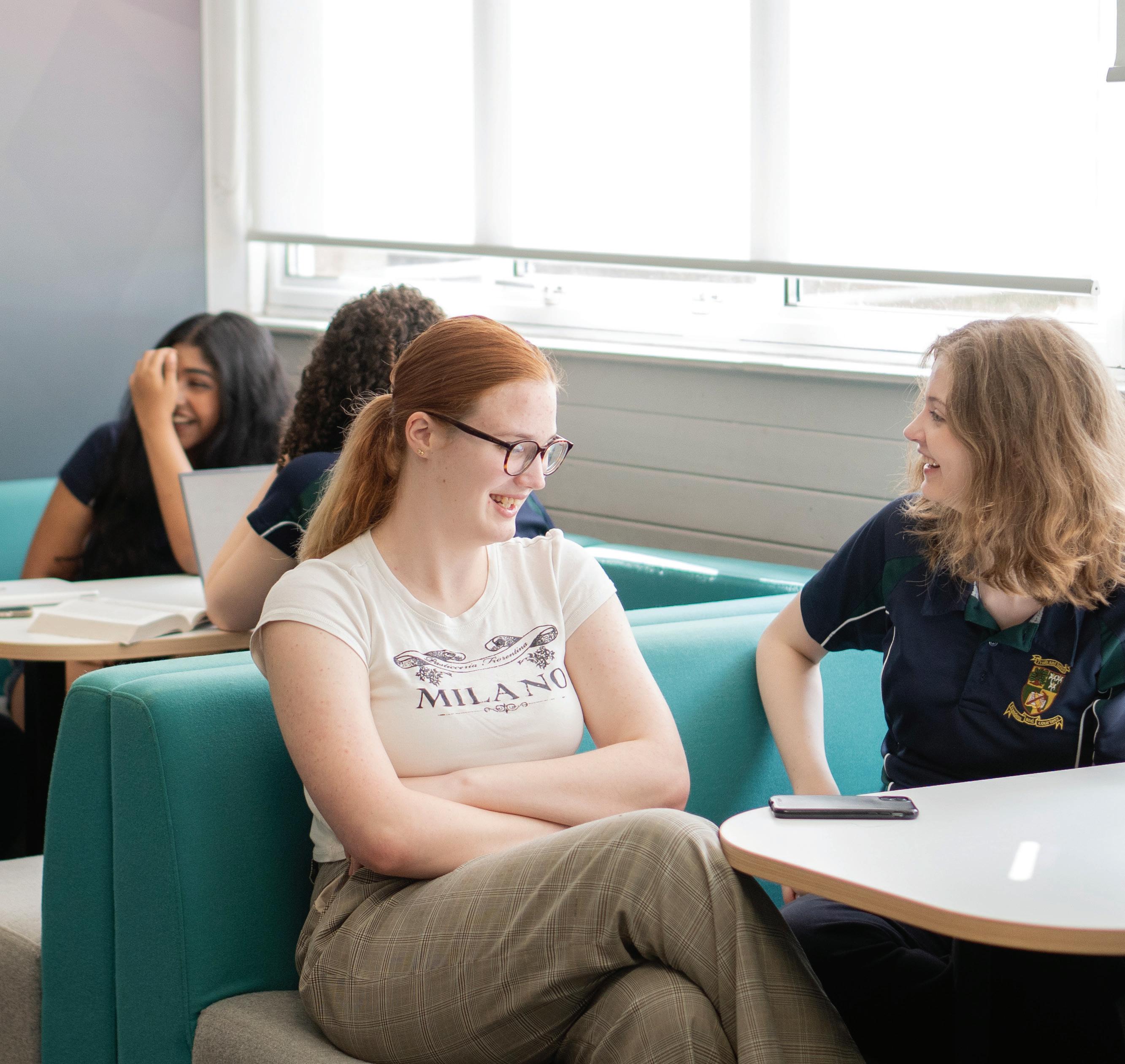
At Sibford, there is a really supportive community of students and staff that are always friendly, and available to talk to if you have any questions. (Sixth Form Student) “ “
Boarding at Sibford School is an enriching, positive experience where all are encouraged to live adventurously.
Sibford welcomes both day students and boarders. A number of our Sixth Form students choose one of our boarding options because boarding can provide a valuable opportunity to experience independent living in preparation for university or leaving home.
Sixth Form boarders find that the staff support and supervision in the evenings helps them focus on school work, manage distractions and gain the qualifications they are aspiring to achieve.
Boarders have the opportunity to take responsibility for assisting in the organisation of extra-curricular activities and trips, and find they are able to develop their self-confidence and leadership skills as senior members of the school community.
Our two boarding houses are staffed by friendly, experienced House Parents who take a genuine interest in the academic and pastoral welfare of the students and work hard to create a family-style environment.
Penn House
Penn is our boys’ boarding house, home to students from Year 7 to Year 13. The House has a large, homely dining area where the students can enjoy mealtimes together, a games room with a pool table and games consoles, and also a cinema room for watching movies and TV.
Upstairs, the House has a number of shared rooms, some of which contain four beds and some of which include two beds. All rooms provide the students with an area for private study.
Fielding is our girls’ boarding house for boarders ranging from Year 7 to Year 13.
This House provides a family atmosphere while at the same time giving the students additional independence in recognition of their age and in preparation for university or leaving home.
Downstairs, the students can enjoy relaxing together in the common area, which includes a lounge with comfortable sofas, a TV room, a pool table and a study area. There is also a well-equipped kitchen and breakfast bar. All the bedrooms in Fielding are twins.
The boarding environment is sensitive to the needs of all individuals. Our aim is to have an emphasis on the pastoral support that strongly reflects the school’s ethos and provides outstanding care for boarders. Our House Parents and pastoral staff are always on hand to talk to boarders and ensure they are having the best possible experience. We appreciate that living away from home is a big change, so we keep a watchful eye to support and help the children and make sure they are comfortable and feel part of the family.
Staff get to know our boarders well and, like parents, try to keep informed of their progress at school, whilst also giving them a secure home to retreat to away from the pressures of academic work.
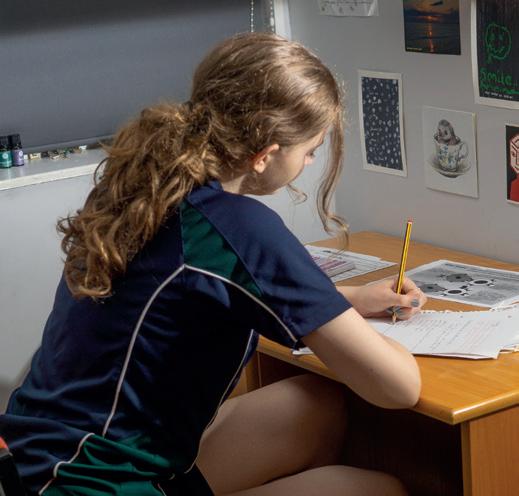
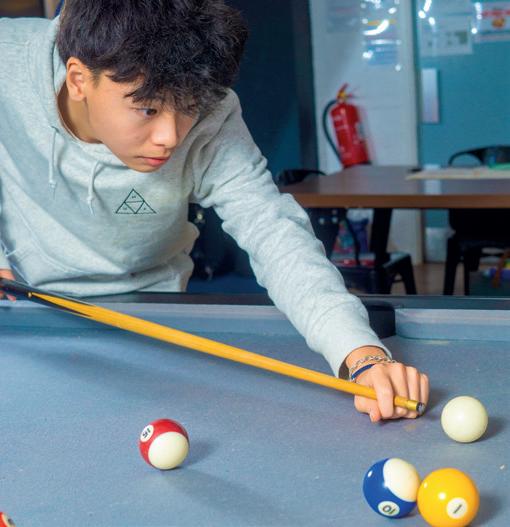

We offer various boarding options here at Sibford School with family and work life in mind:
Full boarding
Full-time boarders live on site in the boarding house at Sibford School for seven nights a week during term time. The school is responsible for the students’ care and wellbeing 24 hours a day.
Full boarding fees include:
• accommodation
• laundry
• help with travel arrangements
• health care
• all meals during the week
• weekend brunch and a Sunday evening meal plus a food allowance and a supply of staple foods (milk, bread, fruit etc.).
This option works well for students who have a lengthy daily commute to Sibford School, but still want to travel back home at weekends. Students have the option to arrive on Sunday night or Monday morning and depart on Friday afternoon or Saturday morning.
Students can stay for one to five nights a week, meaning the school can work effectively around family life and work commitments.
Transport to and from Banbury train station is available on Monday mornings and Friday evenings.
This boarding option means students can board for the occasional night if they wish. The cost includes 24-hour care, full board with meals and bed linen.

As part of our commitment to equipping students with essential life skills, we are excited to offer a unique eight-week programme designed to prepare our students for the realities of university life. Each week, students will participate in a focused session, boarding one night a week, to immerse themselves in practical topics that will ease their transition to life away from home.
From financial management to essential life skills, this programme covers a wide range of areas vital to independent living.
The below illustrates our current programme, which may vary each year as new activities and experiences are introduced.
Learn how to create nutritious, budget-friendly meals with limited resources – a key skill for student life.
Explore how AI tools can enhance your learning, helping you to research efficiently, organise your notes and stay on top of assignments.
Discover simple ways to personalise your space and tackle minor repairs to make student housing feel like home.
Learn essential first aid skills and tips for maintaining physical and mental wellbeing while living independently.
Gain hands-on experience in maintaining a vehicle, from checking oil levels to tyre pressure, ensuring you’re road-ready.
Build social skills and learn how to host a memorable, affordable dinner party for friends and flatmates, fostering community spirit.
Develop the confidence and communication skills needed for presentations, interviews and everyday interactions.
Master the art of managing finances as a student, from setting up a budget to making the most of student discounts.
This programme is an integral part of our Sixth Form offering, providing practical, real-world knowledge that will support our students beyond the classroom. By participating in these sessions, students will gain the confidence and skills to thrive independently and make the most of their university experience.
We offer a variety of tuition for Key Stage 5 students. For students that need support, we can offer individual weekly tutorial sessions with a member of the SfL team.
Our aim is to underpin learning and work towards transition to higher education studies. There is a focus on relevance to study, overlearning, motivation and ‘little and often’.
The broad areas considered to create targets are:
• effective study skills
• assistive technology
• time management and organisation
• reading for research
• writing: assignments, essays, reports
• establishing learning priorities.
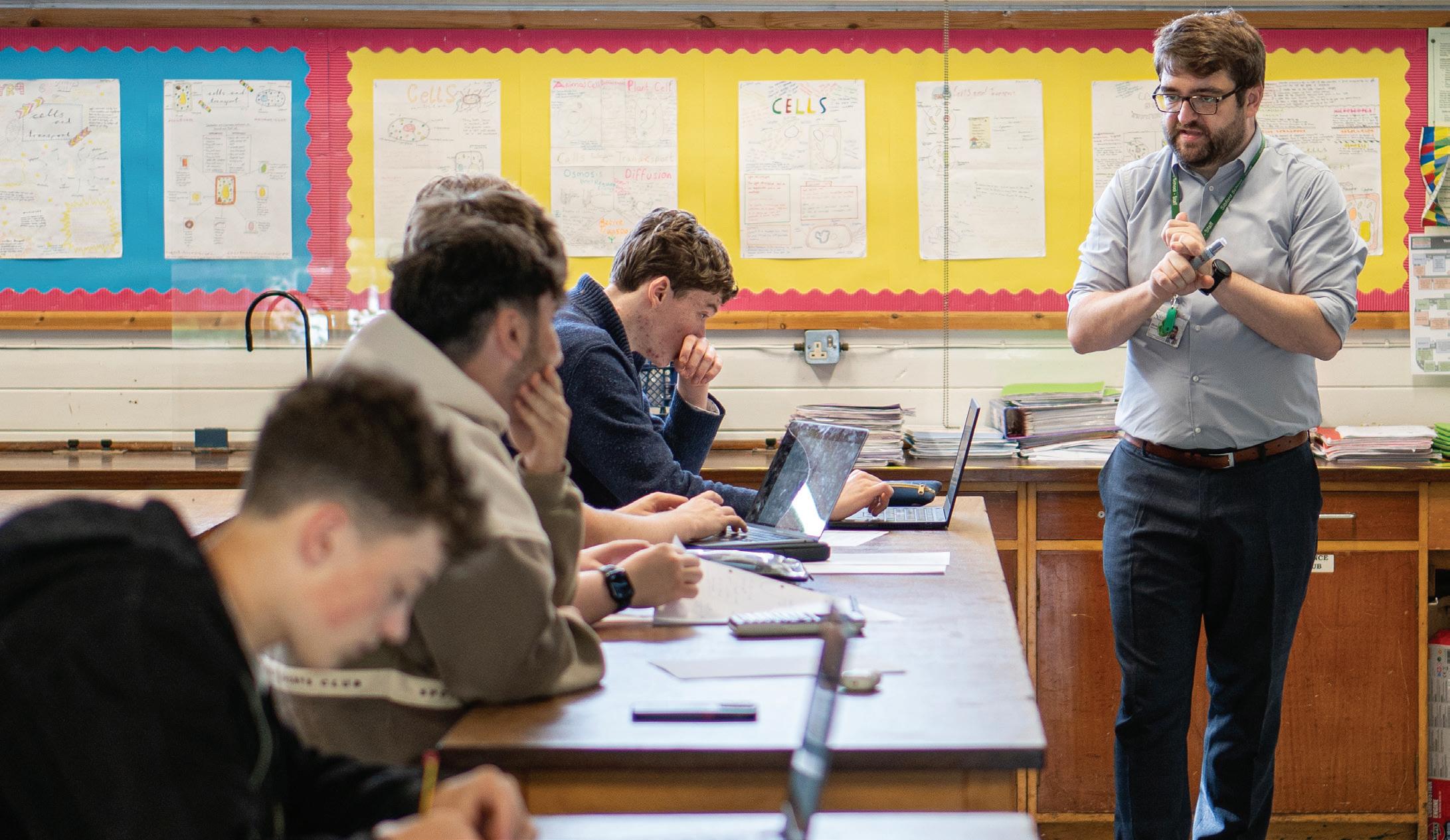
When I first joined Sibford, everyone was very welcoming and always willing to help. Kind, friendly students and teachers make it very easy to settle in coming from another school.
(Sixth Form Student) “ “
“A Sibford scholarship is not just about celebrating excellence, it’s about developing it and sharing it.”
The aims of the scholarship programme at Sibford are to:
• encourage students who are exceptionally gifted and talented to join the school
• recognise outstanding talent within the school at key transition stages
• continue the school’s long tradition of providing public benefit.
CATEGORIES
Scholarships are offered to Sixth Form students across three categories:
- Academic: where a student shows exceptional academic ability and potential.
- Talent: art, drama and music.
- Sport: where a student demonstrates outstanding sporting ability and the potential to lead and inspire others.
All-Rounder scholarships may be awarded at the Head‘s discretion to candidates who show academic promise in more than one area.
To apply for a Year 12 scholarship, you will need to complete the scholarship application form and return it to the Sibford School admissions office, along with any evidence required to support the application.
Scholarship applications for students who have applied to join Sibford Sixth Form in September 2026 should be received by 6 February 2026.
The application will be reviewed and successful candidates will receive an email inviting them to attend a Sixth Form scholarship day the week commencing 23 February 2026. Unsuccessful candidates will be notified at this stage.
For more information on scholarships and to download the scholarship application form, visit sibford.org.uk.
Sibford is committed to helping more young people reach their potential and encouraging them to achieve their aspirations, whatever these might be. We offer a limited number of meanstested bursaries which are made available to existing and prospective students from both Quaker and non-Quaker families.
Bursaries are not dependent on particular academic or creative achievement. They are, however, subject to annual testing of parental means and may be varied upwards or downwards depending on parental circumstances.
An independent company, Bursary Administration Ltd (BAL), will review and assess the application and arrange to visit you. Depending on their assessment of your application, the Bursary Committee may propose an award against day fees only (but not on any extra charges).
New bursary applications for entry in September 2026 close on Friday 30 January 2026. Applicants are required to complete and submit all forms by this date in order to be considered.
External students wishing to apply to Sibford Sixth Form for September 2026 entry should do so by Friday 6 February 2026. Please visit sibford.org.uk/apply-online to complete your Sixth Form application online.
Sibford students moving into Sixth Form from Year 11 do not need to formally apply; instead, they should submit their option choices to admissions@sibfordschool.co.uk by Friday 6 February 2026.
Art: Fine Art / Art, Craft and Design
Biology
Chemistry
Computer Science
Design Technology: Product Design
Drama and Theatre
Economics
English Literature
French
Further Mathematics
Geography
History
Mathematics
Music
Philosophy and Ethics
Physical Education
Physics
Psychology
Sociology
Spanish
Textiles
BTEC Applied Psychology
BTEC Business
BTEC Creative Digital Media
Level 3 Certificate in Food Science and Nutrition
BTEC Music
CTEC Sport and Physical Activity
OTHER
EAL Intensive English
GCSE English
GCSE Mathematics
IELTS Preparation
Level 3 Extended Project Qualification
Please note that courses are dependent on a sufficient number of students wishing to study each subject.
Qualifications will be dependent on the student profile and subject to exam board changes.
A LEVEL
Exam Board: OCR
The Fine Art endorsement is suitable for those students who wish to demonstrate specialisation in particular materials, media or processes to allow for an appropriate depth of study.
The Art, Craft and Design endorsement is suitable for those students who wish to combine specialisms. Students are expected to produce a range of 2D and/or 3D work to evidence study of at least two specialisms in each component. Final outcomes for each component may be in one or a number of specialisms.
Both courses foster independent learning and research skills in students, whilst providing them with a solid grounding in practical techniques. Students are encouraged to explore and refine their ideas, taking into account their own emerging style. Recording information through drawing or related means, forms the basis of these studies, as well as critical and contextual studies.
Art students at Sibford Sixth Form benefit from having their own personal studio space in which they can work at any time throughout the day.
COMPONENT 01: PERSONAL INVESTIGATION
• Non-exam assessment (internally assessed and externally moderated)
• 120 marks
• 60% of the total A Level
This component involves:
• a portfolio of practical work demonstrating personal response to a starting point
• a related personal study (1,000+ words)
COMPONENT 02: EXTERNALLY SET TASK
• An externally set project culminating in a 15-hour exam (internally assessed and externally moderated)
• 80 marks
• 40% of the total A Level
The exam board will provide students with a choice of theme, briefs and stimuli.
Please note: this is a two-year course.
Grade 6 in GCSE Biology or Combined Science.
Grade 6 in GCSE Mathematics.
Grade 6 in GCSE English Language.
Exam Board: Edexcel (Biology A SaltersNuffield specification)
The above represent recommended grades. Each student will be considered on an individual basis.
This course teaches Biology using exciting and motivating concepts that draw on contemporary and cutting-edge developments in the biological sciences. These include the health risks of smoking and obesity; genetic counselling; global warming; GM crops; DNA fingerprinting; the spread of pathogens; the destruction of natural habitats; drug abuse in sport and recreational drug use.
Practical work is seen as an integral accompaniment to theory work and is undertaken as frequently as possible. Eighteen core practicals throughout the course assess students’ competency and they will be awarded either a pass or fail for practical endorsement alongside their examination grade. Students undertake a field trip in the summer of Year 12 to carry out fieldwork, sampling methods and statistics critical to the subject. The Biology course provides the opportunity to develop many skills including research, communication and ICT. Students will also develop an appreciation of the social, moral and ethical complexities of the subject.
Biology A Level is a key choice for anyone wishing to pursue university degrees in biology, zoology, biochemistry, veterinary or animal science and medicine, and has great value when applying for careers such as midwifery, nursing and conservation.
A LEVEL 9BN0 (2 YEARS)
Paper 1: The Natural Environment and Species Survival
• 2-hour exam
• 33.33% of total A Level
Topic 1: Lifestyle, health and risk
Topic 2: Genes and health
Topic 3: Voice of the genome
Topic 4: Biodiversity and natural resources
Topic 5: On the wild side
Topic 6: Immunity, infection and forensics
Paper 2: Energy, Exercise and Coordination
• 2-hour exam
• 33.33% of total A Level
Questions on topics 1 - 4 plus
Topic 7: Run for your life
Topic 8: Grey matter
Paper 3: General and Practical Applications in Biology
• 2-hour exam
• 33.33% of the total A Level award
Questions from topics 1 - 8
A pre-released scientific article will underpin one exam question.
Practical Endorsement for Biology (No exam assessment) Pass/Fail
Grade 6 in GCSE Chemistry or Combined Science or above.
Grade 6 in GCSE Mathematics or above.
Exam Board: OCR A
The above represent recommended grades. Each student will be considered on an individual basis.
As a science, Chemistry spans a number of disciplines, but at its heart it is the science of materials. A Level Chemistry students will learn a variety of topics drawn across the three main areas of Chemistry: inorganic, organic and physical. This means that students will learn how atomic and electronic structure decodes the thinking behind the periodic table, how pharmaceuticals can be made from simple organic molecules, and how reactions are manipulated to get the maximum amount of product in the shortest time.
This course suits students who enjoy thinking deeply and can focus in on the finer details as well as looking at the bigger picture of chemistry in the wider world. It is a compulsory choice for anyone wishing to pursue medicine, dentistry and veterinary science, as well as chemistry-based degrees, such as pharmacy, pharmacology, and biochemistry.
Exam questions will test students’ knowledge and understanding of the relevant specification topics and experimental methods based on the core practicals in the specification.
• Paper 3 will also assess students’ knowledge and understanding of experimental methods, based on the core practicals in the specification.
• Question types: multiple choice, short and long answer questions (up to 6 marks), and calculations.
• Questions assessing students’ use of mathematical skills will make up 20% of the exam papers.
A LEVEL 9BN0 (2 YEARS)
Paper 1: Periodic Table, Elements and Physical Chemistry
• 2-hour 15-minute exam
• 100 marks 37% weighting
Paper 2: Synthetic and Analytical Techniques
• 2-hour 15-minute exam
• 100 marks 37% weighting
Paper 3: Unified Chemistry
• 1-hour 30-minute exam
• 70 marks 26% weighting
All topics across the full A Level specification. Half of the paper will focus on testing students’ knowledge and understanding of practical skills and techniques.
Students’ skills and technical competency when completing practical work is assessed by teachers. This forms the basis for the award of a Practical Endorsement at A Level. This is separate to the A Level grade and, if awarded, will be reported as a ‘Pass’ on A Level certificates for students who achieve it.
Grade 6 in GCSE Maths. Grade 6 in GCSE Computer Science (if studied).
Exam Board: OCR
Our A Level Computer Science qualification splits learning into three sections: computer systems, programming techniques and logical methods, and a programming project.
As natural progression from GCSE (9–1) Computer Science, it provides the perfect springboard for students looking at specialising in a computing-based career. Within the course, students study a range of theory topics. These include the principles and understanding linked to programming, hardware and software, networks, systems development life cycles and implications of computer use. It enables teachers to tailor the qualification to match the requirements of students and has an Open Source ethos, allowing you to use any programming language that meets the needs of the course.
You also have the reassurance that OCR is the market leader in Computer Science provision across the UK. This A Level will develop a student’s ability to:
- think creatively, innovatively, analytically, logically and critically - apply skills in and an understanding of computing (including programming) in a range of contexts to solve problems - delve into producing graphical user interfaces and object-orientated programming solutions.
By completing a programming project, students will have the opportunity to create a substantial piece of software using modern design methods which they can use to display their skills and talents.
A Level Computer Science is assessed through two written exams (each worth 40%) and a programming project (worth 20%). There is one re-sit opportunity for this subject.
IDEAL FOR STUDENTS WHO:
• are looking to develop an advanced understanding of computer science
• want to apply their coding ability to solve real-world problems
• are looking at a computing-orientated degree
• are aiming to work in the computing industry.
CONTENT OVERVIEW
COMPONENT 01: COMPUTER SYSTEMS
Introduces students to the central processing unit (CPU), computer memory and storage, data representation, wired and wireless networks, network topologies, system security and system software.
It also looks at ethical, legal, cultural and environmental concerns associated with computer science.
Students apply knowledge and understanding gained in component 01. They develop skills and understanding in computational thinking: algorithms, programming techniques, producing robust programs, computational logic and translators.
Practical programming
Students are to be given the opportunity to undertake a programming task(s) during their course of study which allows them to develop their skills to design, write, test and refine programs using a high-level programming language. Students will be assessed on these skills during the written examinations, in particular component 02 (section B).
Grade 5 in GCSE English and Maths.
Exam Board: AQA
Grade 5 in GCSE Design and Technology is preferable. This is dependent on the student’s aptitude for the subject.
Good sustainable design is vital to our world and our economy. Attractive styling attracts us to a product whilst graphic design is used to promote it through the medium of marketing. Although many people will say that the UK is no longer a manufacturing nation, nothing could be further from the truth. Many of the traditional ‘heavy’ industries may have gone, but there is still a strong demand for students in the design, engineering and construction industries. These industries need innovative people who are capable of developing material and manufacturing solutions for tomorrow’s problems.
Therefore, we offer our students extensive use of CAD (Computer Aided Design) and CAM (Computer Aided Manufacturing). We have our own virtual learning platform where the students can work on the latest versions of industrial standard software such as Solid Works, as well as two 3D printers, two CNC Routers, a CNC laser cutter and CNC vinyl plotter.
This course is aimed at students who enjoy problem solving, critical thinking and designing products that solve real-life situations. They will get the opportunity to critically analyse a range of products and examine how they were manufactured. This course provides a solid base from which to develop their design and making skills. It will enable students to use the full range of materials to become designers and engineers of the future.
COMPONENT 1:
DESIGN AND TECHNOLOGY IN THE 21ST CENTURY
Written examination: 3 hours / 50% of qualification.
A single exam with a mix of structured and extended questions assessing students’ knowledge and understanding of:
• technical principles
• designing and making principles
• analysing and evaluating wider issues in design and technology.
COMPONENT 2:
A SUSTAINED DESIGN AND MAKE PROJECT
NEA: Approx. 80 hours/50% of qualification.
A sustained design and make project, based on a brief the student has developed, assessing their ability to:
• identify, investigate and outline design possibilities
• design and make prototypes
• analyse and evaluate design decisions and outcomes, including for prototypes made by them and others. A
Grade 5 in GCSE English.
GCSE Drama is not a requirement for students who want to take the A Level course. These students will be considered on an individual basis.
This course is designed for students who enjoy reading, writing about and watching plays and taking part in Drama as a performer, director or designer. Students will get the opportunity to:
• create, perform and respond to drama and theatre
• develop the creativity and independence to become effective theatre makers
• explore the relationship between theory and practice in a range of theatrical styles and periods and historical, social and cultural contexts
• learn how relevant research, independent thought and analysis of live theatre production can inform decision-making in your own practical work and put this understanding into practice
• experience how theatre makers collaborate to create theatre.
1. THEATRE WORKSHOP
• Non-exam assessment: internally assessed, externally moderated
• 20% of A Level
Students will be assessed on either acting or design. They must produce a realisation of the performance or design, and a creative log.
2. TEXT IN ACTION
• Non-exam assessment: externally assessed by a visiting examiner
• 40% of A Level
Students will be assessed on either acting or design. They must realise their performance live for the visiting examiner. Students choosing design must also give a 5–10-minute presentation of their design to the examiner.
3. TEXT IN PERFORMANCE
• Written examination: 2 hours 30 minutes
• 40% of A Level
Section A and B
Two questions, based on two different texts, one written pre-1956 and one written post-1956.
Pre-1956:
The Trojan Women, Euripides
As You Like It, William Shakespeare Hedda Gabler, Henrik Ibsen Machinal, Sophie Treadwell Cat on a Hot Tin Roof, Tennessee Williams
Post-1956:
Saved, Edward Bond
Accidental Death of an Anarchist, Dario Fo Racing Demon, David Hare
Love and Information, Caryl Churchill Chimerica, Lucy Kirkwood
Section C
A question based on a specified extract from: The Curious Incident of the Dog in the Night-Time, Mark Haddon.
Grade 6 in GCSE English.
Grade 6 in GCSE Maths.
It is not essential to have previously studied an Economics or Business course.
Exam Board: AQA
This course aims to develop an interest and enthusiasm for Economics by developing an understanding of the current economic issues, problems and institutions which affect everyday life. It will also explain, analyse and evaluate the strengths and weaknesses of the market economy, setting them both in a national and an international context. The course will help students to develop the knowledge of the key concepts which will enable them to understand and explain the issues involved. Students will therefore develop skills and attitudes which will equip them to face the challenges, opportunities and responsibilities of adult working life.
The course at A Level is divided into two parts:
1. Micro-Economics
Individuals, Businesses, Markets and Market Failure
2. Macro-Economics
The National and International Economy
Paper 1: Markets and Market Failure
• 2-hour written paper (including data response and essay questions)
• 80 marks
• 33.33% of total A Level
A more detailed examination of the activities of businesses and market, with a review of the issues raised by inequalities of income and wealth.
Paper 2: National & International Economy
• 2-hour written paper (including data response and essay questions)
• 80 marks
• 33.33% of total A Level
An in-depth study of the four macro-economic objectives and government policy, with an increased focus on the international context.
Paper 3: Economic Principles and Issues
• 2-hour written paper (including multiple choice and data response questions)
• 80 marks
• 33.33% of total A Level
An overview of issues raised in both Micro and Macro Economics.
Grade 6 in GCSE English Language.
Grade 6 in GCSE English Literature (if studied).
Grade 5 will be considered depending on circumstances.
Exam Board: AQA B
The A Level English Literature course is exciting and dynamic, introducing students to a range of challenging texts from the classics to contemporary fiction, in a variety of forms and genres.
Students enjoy engaging, lively discussions and thought-provoking reading assignments. The AQA course trains students to read critically and encourages the craft of academic writing. It offers new ways of looking at texts and particularly stresses links and comparisons between different works of literature.
This is an academic, rigorous course, which is an excellent introduction to the serious study of literature; it is also valuable preparation for further study in a variety of fields.
At A Level, students can develop their confidence when dealing with texts from different periods over different genres. The course offers a wide choice of set texts and places emphasis on genre and theory. The texts chosen interconnect, influence and illuminate each other, encouraging independent study.
A LEVEL (2 YEARS)
Unit 1A: Aspects of Tragedy
• 2-hour 30-minute exam
• Closed book
• 75 marks
• 40% of A Level
Study of three texts: one Shakespeare; one drama; one further text (one of these being pre-1900).
Unit 2A: Elements of Crime Writing OR Elements of Political Writing
• 3-hour exam
• Open book
• 75 marks
• 40% of A Level
Study of three texts: one post-2000 prose; one poetry; one further text (one of these being pre-1900).
Critical Anthology
• Non-exam assessment
• 50 marks
• 20% of A Level
Two written essays, one on a poet and one on a prose text. These are analysed through areas in the Critical Anthology.
Exam Board: OCR
Grade 6 in GCSE Geography. (Grade 5 in GCSE English and Maths is recommended.)
Students without GCSE Geography will be considered, dependent on other grades.
This course covers a range of topical issues from human and physicals aspects of Geography. Geography A Level is well regarded by universities and employers due to the skill set that the course offers.
Fieldwork plays an important part in this subject. Our most recent field trip was a week in Wales, investigating inequality in Lampeter and the study of coastal processes along Cardigan Bay.
A LEVEL (H481) EXAMINED AT THE END OF YEAR 13
Unit 01: Physical Systems
• 1- hour 30-minute exam
• 22% of the total A Level
Physical Landscapes / coasts
Earth’s Life Support Systems
Geography Skills
Unit 02: Human Interactions
• 1-hour 30-minute exam
• 22% of the total A Level
Changing Spaces: Making Places
Global Connections - Human Rights and Migration
Geographical Skills
Students are able to study towards the AS Level at the end of Year 12.
Unit 03: Geographical Debates
• 2-hour 30-minute exam
• 36% of the total A Level (optionality – two of five to be studied)
1. Climate Change
2. Disease Dilemmas - current school option
3. Exploring Oceans
4. Future of Food
5. Hazardous Earth - current school option
Geographical Skills
Unit 04/05: Independent Investigation
• Non-exam assessment
• 20% of the total A Level
Exam Board: AQA
A Level History requires a passion for exploring and making judgements about the past. The course requires analytical skills, a willingness to take intellectual risks and an inquisitive mind. Lessons introduce students to a broad range of historical material to allow them to foster a sense of period across the course. Students are expected to read widely to build and broaden their knowledge and understanding of the course.
(1C: THE TUDORS, 1485 - 1603)
• 2-hour 30-minute exam
• 80 marks
• 40% of A Level
This option allows students to study, in breadth, issues of change, continuity, cause and consequence in this period through the following key questions:
• How effectively did the Tudors restore and develop the powers of the monarchy?
• In what ways and how effectively was England governed during this period?
• How did relations with foreign powers change and how was the succession secured?
• How did English society and the economy change and with what effects?
• How far did intellectual and religious ideas change and develop and with what effects?
• How important was the role of key individuals and groups and how were they affected by developments?
In the exam, students are required to evaluate three different historical interpretations drawing on their own knowledge. In addition to this, they answer two essay questions from a choice of three.
2:
(2N: REVOLUTION AND DICTATORSHIP: RUSSIA 1917 - 1953)
• 2-hour 30-minute exam
• 80 marks
• 40% of A Level
Students study the development and practice of communism in Russia. They explore concepts such as Marxism, Leninism, Stalinism, ideological control and dictatorship. This component also enables students to consider issues of political authority, the power of individuals and the inter-relationship of governmental and economic and social change.
In the exam, the students are required to evaluate the value of three historical sources and answer two essay questions from a choice of three.
COMPONENT 3: THE ADVANCEMENT OF THE RIGHTS OF AFRICAN AMERICANS, 1865-1968
• 20% of A Level
Students submit an essay of approximately 3,500 to 4,500 words which addresses the advancement of the rights of African Americans. This historical investigation provides students with an enhanced understanding of the nature and purpose of history as a discipline and how historians work. Students are required to demonstrate skills of historical analysis, evaluation, and judgement, to appraise the views of historians, and to evaluate primary sources. This is a fascinating area of study which still resonates in contemporary public discourse.
Grade 6 in GCSE Mathematics (7 or higher is strongly recommended).
Exam Board: Edexcel
Through Mathematics, students develop their abilities in logical thinking, formulating problems, following a structured approach to solving them, making deductions and analysing complex situations. These skills are critical to success in many degree courses and careers so it is no wonder universities hold A Level Mathematics in high regard.
Whereas in the past there were options in terms of which modules could be studied, the entirety of the course is now compulsory and includes three main areas of study: Pure Mathematics, Mechanics and Statistics.
A LEVEL
• 3 equally weighted exam papers
• 2 Pure and 1 Applied (Statistics and Mechanics)
Pure Mathematics
We continue to study the main themes of algebra and geometry alongside introducing and exploring calculus, all with an emphasis on becoming more mathematically minded and rigorous in our approaches.
Statistics
Further students’ conceptual understanding of statistical methods, including applications of methods to large data sets.
Mechanics
More complex situations are modelled with the use of mathematics, enhancing students’ understanding of the physical applications of forces.
There may be an opportunity for students to sit an AS at the end of Year 12, but this will be decided on an individual basis.
Grade 7 in GCSE Mathematics.
You must also be studying A Level Mathematics.
LEVEL Exam Board: Edexcel
Further Mathematics is a full A Level, which adds to the breadth of topics covered and enhances the experience and understanding of the vast subject that is Mathematics. It consists of various module options and takes students beyond the Mathematics A Level syllabus to begin studying topics that are typically seen during the first year in university science or engineering courses. The possible course of study is outlined below.
A LEVEL
• 4 equally weighted exam papers
Core Pure Mathematics 1 and 2
These are the only compulsory modules and enable students to study problems involving series, complex numbers, matrices, proof, polar coordinates, hyperbolic functions and differential equations.
There are then a number of options from which two must be studied. Options include but are not limited to:
Further Pure Mathematics
Students begin to study more complex problems involving numerical methods, conic sections, complex numbers, matrix algebra and proof, first order differential equations, second order differential equations, Maclaurin and Taylor series, vectors and calculus.
Mechanics
Add further complexity to the study of kinematics and dynamics. It introduces momentum, elastic collisions and the concepts of work, energy and power.
Decision Mathematics
This is the study of algorithms and involves being able to follow, as well as create, processes that enable tasks to be done more efficiently or by a computer. It involves the study of algorithms on graphs, the route inspection problem, critical path analysis and linear programming.
There may be an opportunity for students to sit an AS at the end of Year 12, but this will be decided on an individual basis.
Grade 6 or above in GCSE French/Spanish.
Exam Board: AQA
The above represent recommended grades. Each student will be considered on an individual basis.
This specification is designed to be taken over one or two years. The course fosters a range of transferable skills including communication, critical thinking, research skills and creativity, which are valuable to the individual and society. The content is suitable for students who wish to progress to employment or further study, including a modern languages degree.
The AS course is fully co-teachable with the first year of the A Level course, enabling flexibility for students as they plan their course of study.
Paper 1: Listening, reading and writing
• 1-hour 45-minute written exam
• 45% of the AS
Aspects of society: current trends
Artistic culture
Grammar
Paper 2: Writing
• 1-hour 30-minute written exam
• 25% of the AS
One text or one film from the lists in the specification Grammar
Paper 3: Speaking
• 12–14-minute oral exam
• 30% of the AS
One sub-theme from Aspects of society: current trends and one sub-theme from Artistic culture.
This specification has been designed to be studied over two years. This qualification is linear which means that students will sit all their exams at the end of the course.
Paper 1: Listening, reading and writing
• 2-hour 30-minute written exam
• 50% of the A Level
Aspects of society: current trends
Aspects of society: current issues
Artistic culture
Aspects of political life
Grammar
Paper 2: Writing
• 2-hour written exam
• 20% of the A Level
One text and one film or two texts from the list set in the specification Grammar
Paper 3: Speaking
• 21–23-minute (including 5 minutes’ preparation time) oral exam
• 30% of the A Level
Individual research project. One of four sub-themes:
• Aspects of society: current trends
• Aspects of society: current issues
• Artistic culture
• Aspects of political life
Grade 7 or above in GCSE Music.
Proficiency on at least one instrument (or voice) approximately Grade 6 Standard or above and a firm grasp of conventional musical notation; some ability on the piano is desirable.
The above represent recommended grades. Each student will be considered on an individual basis.
The OCR Advanced GCE specifications extend the musical skills of Performing, Composing and Appraising in ways that emphasise their interdependence. There is increased choice within the specification to focus on performance or composition.
There are no limits on the instruments (or voices) and types of repertoire which may be presented in performance and the study of the widest possible range of music, including folk, popular and classical traditions of non-Western origin as well as those of jazz and Western classical and popular traditions, is encouraged.
Both AS and A2 specifications offer scope to develop creativity using music technology and in non-Western traditions, as well as more traditional tonal and non-tonal Western composing skills.
Please note, there are two possible Music courses, the A Level course as detailed here and the BTEC course on page 50.
We will be offering just one of these courses, based on the most suitable qualification for the applicants.
Grade 6 in GCSE English.
Exam Board: Edexcel
GCSE Religious Education / Religious Studies short or full course. Grade 6 is preferable but not essential.
This qualification is designed to nurture the development of critical and reflective thinking with the aim of developing a greater understanding and appreciation of religious beliefs and teachings, as well as the disciplines of ethics and philosophy of religion. Emphasis is placed on critical analysis and the construction of balanced, informed arguments within the context of a religious, philosophical and ethical awareness. This course aims to thoroughly engage students and develop an interest in religious studies, which extends beyond the classroom and can be applied to the world around them.
This course aims to encourage students to:
• develop interest in a rigorous study of religion and belief and relate it to the wider world
• develop knowledge and understanding appropriate to a specialist study of religion
• develop an understanding and appreciation of religious thought and its contribution to individuals, communities and societies
• adopt an enquiring, critical and reflective approach to the study of religion.
The knowledge and skills that you will develop from studying this course would be particularly useful for careers in law, education, social work, politics, medicine, administration and the media. However, the subject material is also pertinent for your general personal development.
A LEVEL (9RS0)
Three components will be studied:
1. Philosophy of Religion
2. Religion and Ethics
3. Buddhism
Topics range from ancient influences on Religion Philosophy and Ethics to twentieth-century perspectives.
Assessment is by three 2-hour written examinations covering all three components.
Grade 6 in GCSE Biology or Science & Additional Science.
Exam Board: AQA
The above represent recommended grades. Each student will be considered on an individual basis.
A Level PE gives you a deeper understanding of how the body and mind work in sport and physical activity. You’ll study topics like anatomy and physiology, skill acquisition, sports psychology, and the social and cultural factors that influence performance. You’ll also develop practical performance and analysis skills, along with critical thinking, research, and problem-solving abilities valued by universities and employers.
SUBJECT CONTENT
COMPULSORY CONTENT
• Applied Anatomy and Physiology
• Skill Acquisition
• Sport and Society
• Exercise Physiology
• Biomechanical Movement
• Sport Psychology
• Sport and Society and the Role of Technology in Physical Activity and Sport
ASSESSMENT
Paper 1: Factors affecting participation in Physical Activity and Sport
• 35% of A Level
Paper 2: Factors affecting optional performance in Physical Activity and Sport
• 35% of A Level
Paper 3: Non-exam assessment: Practical performance in Physical activity and Sport
• 30% of A Level
Please note, there are two possible Sport courses, the A Level course as detailed here and the CTEC course on page 51.
We will be offering just one of these courses, based on the most suitable qualification for the applicants.
Grade 6 in GCSE Physics or Grade 6-6 in GCSE Combined Science.
Grade 6 in GCSE Mathematics.
Exam Board: Edexcel
The above represent recommended grades. Each student will be considered on an individual basis.
This course combines theoretical study of Physics principles as well as the uses and applications of Physics. Topics such as mechanics, waves, materials and electricity are studied in the first year. In the second year, particle physics, further mechanics, electric and magnetic fields and cosmology are key topics. There are plenty of opportunities for practical work in the laboratory. It is recommended that students studying Physics also study A Level Mathematics, but it is not essential.
A LEVEL (2 YEAR)
Unit 1: 9PHO/01
• 1-hour 45-minute exam
• 90 marks
• 30% of total qualification
This unit involves the study of Mechanics
Electric circuits
Further mechanics
Electric and magnetic fields
Nuclear and particle physics
Unit 2: 9PHO/02
• 1-hour 45-minute exam
• 90 marks
• 30% of total qualification
This unit involves the study of Materials Waves and particle nature of light
Thermodynamics
Space
Nuclear radiation
Gravitational fields
Oscillations
Unit 3: 9PHO/03
• 2-hour 30-minute exam
• 120 marks
• 40% total qualification
The paper will include questions that assess conceptual and theoretical understanding of experimental methods (indirect practical skills) that will draw on students’ experiences of the core practicals.
Unit 4: 9PHO/04
Science Practical Endorsements
No exam assessment Pass/Fail
Grade 6 in GCSE Maths and Science.
Exam Board: AQA
The above represent recommended grades. Each student will be considered on an individual basis.
This course offers an engaging and effective introduction to Psychology through scientific investigation, developing the ability to analyse data, evaluate evidence and apply research methods, with many of the skills required being mathematical and scientific in nature. Alongside this, students will refine transferable skills highly valued by universities and employers, such as critical analysis, independent thinking and research.
COMPULSORY CONTENT
• Social influence
• Memory
• Attachment
• Clinical Psychology and mental health
• Approaches in Psychology
• Biopsychology
• Research methods
• Issues and debates in Psychology
Option 1
• Relationships
• Gender
• Cognition and development
Option 2
• Schizophrenia
• Eating behaviour
• Stress Option 3
• Aggression
• Forensic Psychology
• Addiction Please note that the optional units studied will be chosen by the course teacher.
Paper 1: Introductory Topics in Psychology
• 33.3% of A Level
Paper 2: Psychology in Context
• 33.3% of A Level
Paper 3: Issues and Options in Psychology
• 33.3% of A Level
Please note, there are two possible Psychology courses, the A Level course as detailed here and the BTEC course on page 46.
We will be offering just one of these courses, based on the most suitable qualification for the applicants.
Grade 5 in GCSE English.
There is no requirement to have studied Sociology before.
Exam Board: AQA
This qualification offers an engaging and effective introduction to Sociology. Students will learn the fundamentals of the subject and develop skills valued by higher education institutions and employers, including critical analysis, independent thinking and research.
Sociology is a social science which explores the causes and outcomes of social behaviour, societal change, the structure of society and the different groups within it. Through studying Sociology A Level, you will explore a range of fascinating topics such as families and households, education, and crime and deviance through the lens of socialisation, culture, power and identity. The impact of gender, class, age and ethnicity on these topics is also explored. Additionally, you will develop a thorough understanding of sociological research methodology and gain knowledge of quantitative and qualitative methods of research, with consideration of the associated practical and ethical issues involved in research.
Please note: this is a two-year course, with exams being sat in the Summer Term of
Grade 5 in GCSE Textiles / Art / DT.
A LEVEL Exam Board: OCR
Textiles is a versatile and exciting subject at Sibford School. This course allows students to extend and develop their skills in a wide range of media. We encourage agility in thinking, and a courageous, creative capability with materials. Outcomes are considered for interior surfaces, stand-alone pieces, fashion and accessories. Students are encouraged to pursue their own particular interests, be that constructed or surface design textiles. They are encouraged to explore and refine their ideas considering their own emerging personal style. Recording information, through drawing or related means, forms the basis of these studies.
The course fosters independent learning and research skills in students, whilst providing them with a solid grounding in practical techniques. Critical and contextual studies are fundamental. Sixth Form Textiles students benefit from having their own personal studio space in which they can work at any time throughout the day.
COMPONENT 01: PERSONAL INVESTIGATION
Non-exam assessment
(internally assessed and externally moderated)
• 120 marks
• 60% of the total A Level
This component involves:
• a portfolio of practical work demonstrating personal response to a starting point
• a related personal study (1,000+ words).
COMPONENT 02: EXTERNALLY SET TASK
An externally set project culminating in a 15-hour exam (internally assessed and externally moderated)
• 80 marks
• 40% of the total A Level
The exam board will provide students with a choice of theme, brief and stimuli.
Please note: this is a two-year course.
Sibford offers Level 3 vocational qualifications in the following subjects:
• BTEC Applied Psychology
• BTEC Business
• BTEC Creative Digital Media Production
• Level 3 Certificate in Food Science and Nutrition
• BTEC Music
• CTEC Sport and Physical Activity
Vocational Grading A Level Equivalent
Distinction*
Distinction

Sibford offers a supportive environment where teachers push me to do my best, helping me prepare for the future.
(Sixth Form Student)
“ “
Exam Board: Pearson Equivalent to one A Level
The above represent recommended grades. Each student will be considered on an individual basis.
The BTEC Level 3 National Extended Certificate in Applied Psychology is designed for post-16 students wanting to continue their education through applied learning, and who aim to progress to higher education and ultimately to employment, possibly in the applied psychology sector.
COMPULSORY UNITS
• Psychological Approaches and Applications
• Conducting Psychological Research
• Health Psychology
OPTIONAL UNITS (STUDENTS COMPLETE ONE UNIT)
• Criminal and Forensic Psychology
• Promoting Children’s Psychological Development
• Introduction to Psychopathology
• Applied Sport Psychology
Please note that the optional unit studied will be chosen by the course teacher.
Please note, there are two possible Psychology courses, the BTEC course as detailed here and the A Level course on page 42.
We will be offering just one of these courses, based on the most suitable qualification for the applicants.
Exam Board: Edexcel
Equivalent to one A Level
Minimum Grade 5 in Maths and English, and in Business if taken, although it is not essential to have previously studied a business course.
The BTEC Business programme, Level 3 Extended Certificate, offers the students the opportunity to develop their understanding of the ‘real’ business world through; focused research and independent study. Students are expected to commit to the course through organising their time effectively to meet strict deadlines for coursework projects and embrace practical application of business theories and models to real business examples.
Students will prepare for two external examinations in Year 12 based on specific areas of business: Marketing campaigns and Personal and Business Finance. In Year 13, the final units are coursework and practical assessments. Students will investigate real businesses and make comparisons of why and how successful they are, based on a variety of business models and theories. Additionally, students will undertake roles as an interviewee and interviewer to build and develop their understanding of the recruitment and selection process. This prepares students for applications to higher education, apprenticeships, or the world of work.
The course structure is as follows:
Candidates complete 4 units as outlined below Year 12 and Year 13
YEAR 12
Unit 2: Developing a Marketing Campaign 90 GLH External Examinations: 2hrs Part A and 3hrs Part B
Unit 3: Personal and Business Finance 120 GLH External Examination: 2hrs
YEAR 13
Unit 1: Exploring Business 90 GLH Internal Assessment – Coursework
Unit 8: Recruitment and Selection 60 GLH Internal Assessment – Coursework
Every unit needs to be passed in order for the learner to achieve the full qualification. External examination take place in May and January. Currently students sit the external examination in Year 12. Students can retake external examinations in Year 13 to improve final grade.
Typically, students go on to:
• study at university: business management, marketing, accounting, human resources management, planning
• apprenticeship in accounting, business and industry
• set up their own business.
Grade 4 in GCSE English and Maths.
Exam Board: WJEC
This is a fantastic course which takes a closer look at the food we eat every day. Students will be cooking every week, alongside reinforcing the learning with theoretical knowledge in a classroom environment. By the end of this course you will have a sound knowledge of the science behind the food we eat, understanding chemical compositions of food along with a fantastic practical skill set.
YEAR 12
Unit 1 – Meeting Nutritional Needs of Specific Groups
• 50% controlled assessment which requires you to plan and cook a three-course meal for 2 people
• 50% written exam worth 90 marks
YEAR 13
Unit 2 – Ensuring Food is Safe to Eat
Why should we follow storage recommendations on food products? Why do menus need to highlight products containing nuts? Why should vegetarian dishes be prepared away from those containing meat? Why are temperature probes used in the food industry?
Unit 3 - Experimenting to Solve Food Production Problems
Why does ice cream freeze? How do I stop cream from curdling? How do I make cakes rise? Why do salad dressings separate?
CAREER PATHWAYS
Studying Food Science and Nutrition opens doors to many pathways:
• studying ‘Food Science’ at university
• working directly in a kitchen
• new product development roles
• product evaluation roles.
Exam Board: Edexcel
Equivalent to one A Level
Grade 4 in GCSE Maths and Grade 5 in English. Students will also benefit from having an interest in film and television production. Candidates’ applications will be considered on an individual basis.
The qualification provides a coherent introduction to the study of creative digital media production at this level. Students develop an understanding of media industries through analysing media representations alongside pitching and producing their own media projects.
It is designed for post-16 students who aim to progress to higher education and ultimately to employment, as part of a programme of study alongside other BTEC Nationals or A Levels.
This course will suit students who are positive and self-motivated and who can manage their time effectively. The course is taught through a combination of formal teaching and independent research and investigation.
Note:
External assessments take place in January and May of each academic year. Assessment can be sat in either year of the course delivery. Currently, students sit Unit 1 external assessment in January of their first year and Unit 8 in January of the second year.
Students must complete the 2-year course in order to obtain certification.
CANDIDATES COMPLETE 4 UNITS IN TOTAL AS OUTLINED BELOW
Unit 1: Media Representations
Exam: 2 hours. External
Unit 8: Responding to a commission
Exam: 5 hours. External
Unit 4: Pre-production portfolio Internal
Unit 10: Film production (Fiction) Internal
Grade 4 in GCSE Music. Proficiency in at least one instrument (or voice).
National Diploma / Certificate in Music Exam Board: Edexcel Equivalent to one A Level
The above represent recommended grades. Each student will be considered on an individual basis
This course enables students to develop practical skills, knowledge and understanding relevant to the music industry. There are many performance, recording and creative opportunities in addition to a timetable of classroom-based learning.
All students undertake three mandatory units:
• Ensemble performance techniques
• Professional practice in the music industry
• Creating a music product
• Student’s own choice of a specific area of interest
Please note: both the Music A Level and Music BTEC Level 3 are twoyear courses.
Please note, there are two possible Music courses, the BTEC course as detailed here and the A Level course on page 38.
We will be offering just one of these courses, based on the most suitable qualification for the applicants.
Grade 4 in GCSE English and GCSE Maths.
Exam Board: OCR
Equivalent to one A Level
This qualification is not just about being able to play sport, it will provide students with the skills, knowledge and understanding to progress into higher education on a sport-related programme such as sport & physical education, sport science, sport coaching and development or sport and leisure management.
Students will take between five and six units made up of mandatory and optional units:
Everybody will study the following mandatory units:
• Body systems and the effects of physical activity
• Sports coaching and activity leadership
• Sports organisation and development
These units will give students an understanding of sport in the wider contexts of coaching and leadership, anatomy and physiology, the body’s short- and long-term responses to physical activity and the framework of sport in the UK and the organisations involved. Students will also develop transferable skills such as planning, communication, adaptability and leadership.
Every unit must be passed for students to be awarded the qualification. Qualifications are graded using a Pass, Merit, Distinction and Distinction*.
Unit 1 Mandatory (90 GLH):
Body systems and the effects of physical activity.
• 1-hour 30-minute written paper.
Unit 2 Mandatory (90 GLH):
Sports coaching and activity leadership. Internally assessed through coursework assignments and externally moderated.
The Extended Certificate includes units already studied in Year 1 and Units 5 and 6 may vary depending on which optional units have been selected to study.
Unit 3 Mandatory (60 GLH):
Sports organisation and development.
• 1-hour 30-minute written paper.
Unit 5 (60 GLH):
Performance analysis in sport and activity. Internally assessed through coursework assignments and externally moderated.
Unit 19 (60GLH):
Sport and exercise psychology. Internally assessed through coursework assignments and externally moderated.
Please note, there are two possible Sport courses, the BTEC course as detailed here and the A Level course on page 40.
We will be offering just one of these courses, based on the most suitable qualification for the applicants.
(For speakers of other languages)
You will have completed Year 10 and 11 at Sibford School or enter the Sixth Form with an IELTS score of at least 5.5 or have an equivalent Upper Intermediate level.
Note: For those who need further English language before progressing to A Levels, we also offer an Intensive English Course. Please ask for a copy of our EAL brochure.
The English Language Advancement and IELTS Preparation Course is offered as a full subject option for all Year 12 and 13 overseas students. It will help you to advance your general language skills while also providing specialist preparation for the IELTS (International English Language Testing System) exam.
You will study Upper Intermediate English grammar, vocabulary and language skills and will also spend time reading, writing, speaking and listening.
You will also receive support with exam techniques and selfcorrection techniques and undertake regular practice exams.
The exam consists of four sections:
• speaking
• listening
• reading
• writing
Grade 5 in GCSE English.
Grade 5 in GCSE Maths.
Exam Board: OCR
Worth more than 50% of an A Level
This course provides an exciting and challenging opportunity for students to work on a project of their own choice under the guidance of a supervisor. This involves applying organisational skills and strategies to meet your stated objectives.
Your supervisor will work with you to guide and facilitate your learning and to deliver taught skills such as project management, time management, research and presentation skills.
Throughout the project you will have regular tutorials and review meetings with your supervisor and record all aspects of your work in a project log. The format of the project will either be a 5,000-word report or an artefact such as a video, performance, CD, script, exhibition plus a 1,000-word report.
• No formal examinations
• The project is centre-marked and externally moderated
Assessment falls into 4 key areas:
1. Planning and managing
2. Research and use of resources
3. Development and realisation of project
4. Evaluation
By Annabel Heseltine, editor of School House Magazine
“The EPQ can be thought of like a mini thesis. It presents pupils with a chance to pursue a topic of study which is totally of their own choosing and unconstrained by an exam syllabus.
“There are a number of factors that have led to its popularity in recent years. In the first instance, there can be little doubt that the desire to secure places at a leading Russell Group university is the key factor that motivates pupils to pursue it as a course of study. With fierce competition for places at the best universities, the EPQ is becoming one way in which pupils can stand out from the crowd.
“The EPQ also allows pupils to do something totally different and outside of the mainstream of their in-class subject choices. It gives pupils an opportunity to explore fields of study not open to them in the usual A Level subject choices.”

The supportive community, engaging classes, and countless opportunities for personal growth make Sibford a fantastic choice for anyone seeking an enriching education.
(Sixth Form Student)
“ “

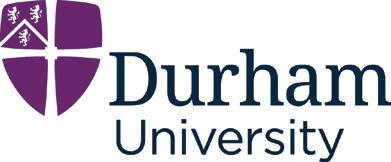
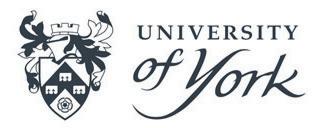
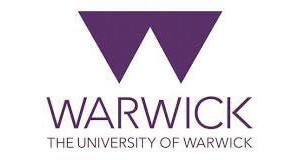
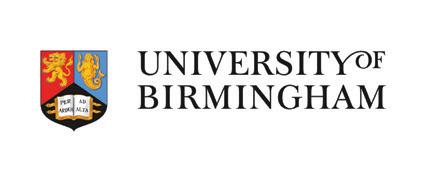



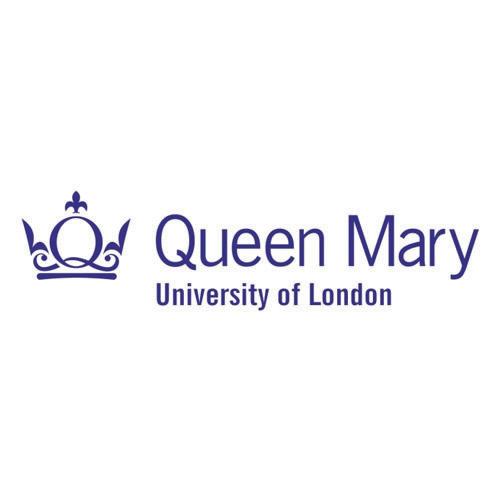





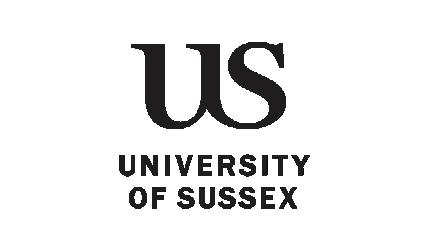
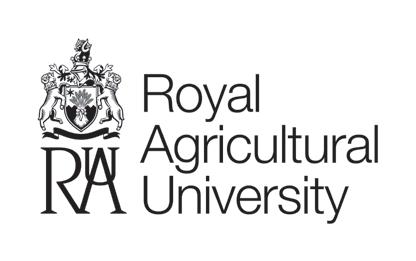



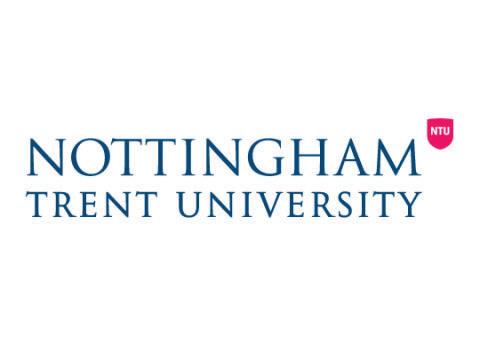
WE ARE PROUD THAT OUR LEAVERS GO ON TO STUDY A WIDE RANGE OF




